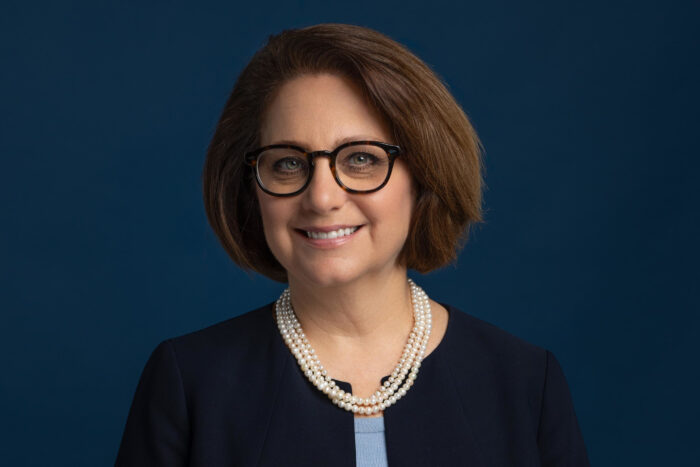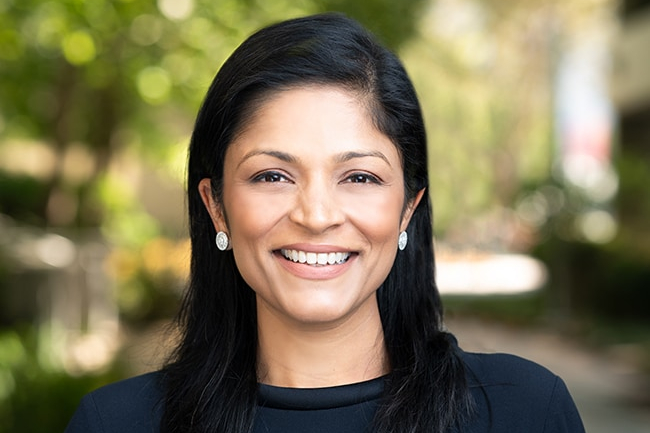Grounded in Jesuit tradition, Marquette’s Core Curriculum provides a distinctive approach to every Marquette University undergraduate student’s educational experience.
From Foundations courses in rhetoric, philosophy and theology to courses across the humanities, social sciences, natural sciences and math, as well as those exploring social systems and values, the Marquette Core Curriculum embodies the Jesuit commitment to a firmly grounded education that prepares its graduates to make a difference in the world.
Dr. Conor Kelly, associate vice provost for faculty affairs and former director of the Core Curriculum, says the Core classes are designed to develop leaders in the world.
“At its heart, the Core Curriculum is about trying to help enable our students to Be The Difference,” Kelly says. “The classes in the Core are sequenced over the course of the students’ time at Marquette so that they can build on one another and point toward that connection — that unity of what our students are learning.”
Marquette Core Curriculum fact facts:
- Core classes are made up of 10 distinct courses that add up to 30 credits.
- Students must complete four Discovery Tier courses — all from the same Discovery theme. These four courses must include one course from each of the three content areas: humanities, natural sciences and mathematics, and social sciences.
- Every course in the curriculum is rooted in disciplines that have been central to a Jesuit education for over 400 years.
Below in a Q&A, learn more from Dr. Michael Olson, teaching associate professor of philosophy in the Klingler College of Arts and Sciences and director of the Marquette Core Curriculum.

______________________________________________________________________________
How does the Core Curriculum work? Why are they spaced out over the four years and not just taken during the first two years?
The Marquette Core Curriculum sets us apart from our peer institutions. Many core curricula require students to take a handful of courses from around the university that are collectively expected to provide a broad foundation for more focused major course of study. The MCC is instead built on a developmental model designed to parallel and supplement students’ majors and minors. As a student’s understanding of the skills and knowledge base in accounting or German increases, the MCC invites them to think about how that growing expertise empowers them to collaborate with experts in other fields to analyze and respond to some of the biggest questions of the day. In other words, the three tiers of the MCC are designed to foster the development of different skills and habits of thought that align with students’ broader intellectual, personal and spiritual growth over the course of their time at Marquette.
What’s the theory or reasoning behind why each Core class is chosen?
The Marquette Core Curriculum is the result of a remarkable cooperation across all of Marquette’s undergraduate-serving colleges. The MCC Committee, a group composed of instructors of every piece of the MCC, works with departments and colleges to identify courses that speak to the educational goals and thematic foci of the Core. We also help to organize workshops and provide support for faculty interested in deepening the connections between existing course content and the Core Learning Outcomes, the Discovery Tier Guiding Questions, or the MCC’s interest in social justice.
Why is it important to have Core Curriculum classes included with a college education?
The Marquette Core Curriculum is a vibrant component of the university’s Catholic, Jesuit mission, which measures its success based on the kinds of people our graduates become. The excellent disciplinary expertise students develop at Marquette is the backbone of many of their professional successes, but our alumni are more than just professionals. They are parents, friends, neighbors, jurors and community members. The Marquette Core Curriculum is designed to develop our students’ abilities to reflect for themselves and engage each other on questions of what it means to act justly, to live well and to care for our common home.
What makes the Core Curriculum classes crucial to students achieving a Marquette education?
The Marquette Core Curriculum is an essential component of what distinguishes a Marquette graduate. An engineer, nurse or teacher educated at Marquette has all the technical expertise of someone trained at MSOE or UWM, but the Marquette grad has also spent 30 credit hours thinking about how their disciplinary and professional specializations relate to some fundamental questions: What does it mean to live well? What do we owe to each other? What does true leadership demand of us? That broad reflection on how professional life is situated within human life makes Marquette grads more alert to the social, political, aesthetic and moral dimensions of the decisions they make, which in turn makes them more effective and humane professionals, community leaders and neighbors.



